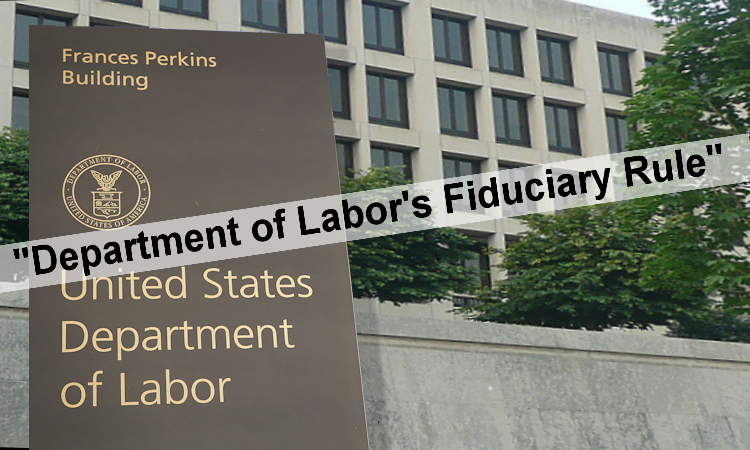The Trump administration has hit the ground running since taking office in late January, moving at a tempo more reminiscent of a nimble business rather than the plodding pace of past administrations. One of the results of this swift action is that the Department of Labor Fiduciary Rule will likely be delayed from its anticipated April 10th implementation date.
On February 3rd, President Trump sent a memo to the Department of Labor directing the agency to conduct a cost-benefit analysis of the proposed Fiduciary Rule. In response, the Department of Labor sent a proposal to the Office of Management and Budget to delay the April 10th implementation date, seeking a delay of 180 days to study the issue further to see whether investors or financial firms would be harmed by the regulation. The proposed delay raises the ire of many proponents of the ruling, including Massachusetts Senator Elizabeth Warren who has been conducting her own research in private communications with some financial firms she claims back the DOL Fiduciary Rule. It is unknown whether the delay will lead to the cancellation of the proposed implementation, or if there will merely be some tweaks to the proposed regulation resulting from the review.
For all of the support the Department of Labor Fiduciary Rule has received, it remains a flawed piece of legislation. For starters, the proposed Fiduciary Rule only covers retirement accounts. Because the legislation was crafted in the Department of Labor, the protection is limited to the scope of the DOL’s areas of concern: protecting the welfare of wage earners, job seekers and retirees. This limits the Department of Labors’ influence to retirement accounts and employee benefit plans only. That leaves a great deal of investors’ assets not protected by the Fiduciary Rule.
The second major flaw of the DOL Fiduciary Rule is that it allows brokers to continue to operate as they have in the past by using the Best Interest Contract Exemption, or BICE. The Best Interest Contract Exemption was created by the Department of Labor to allow brokers to continue to earn commission compensation for the financial products sold to investors. The Best Interest Contract Exemption allows brokers to earn commissions by selling the same high commission products that prompted the ruling in the first place, as long as the investor acknowledges in writing that the broker is acting in a manner that does not fully comply with the Fiduciary Standard.
If the DOL’s Fiduciary Rule implementation is canceled, there exists the possibility that the Securities and Exchange Commission (SEC) and/or the Financial Industry Regulatory Authority (FINRA) will take up the issue. The SEC was originally charged with creating the fiduciary standard under the Dodd-Frank Act of 2010 but has failed to act on the matter.
Regulations creating a uniform standard of care among all advisors may not be necessary after all, however. Even if the DOL’s Fiduciary Rule never sees the light of day, the attention that the proposed regulations have brought to the different standards of care that advisors exercise for their clients will help consumers make better decisions when choosing to work with a financial advisor. Investors who wish to work with an advisor who will put the investor’s best interests first now understand that they should work with a planner who works for a Registered Investment Advisory (RIA) firm and is compensated by advisory fees, not commissions. Any other type of advisor is merely being held to a suitability standard, and there is no guarantee that the advisor is acting in the client’s best interests.
Bollin Wealth Management will continue to follow this story with great interest and will provide updates as the details unfold. Clients of Bollin Wealth Management can rest assured that we will continue to follow the fiduciary standard of care (the highest standard of care) for all of their financial planning needs.

